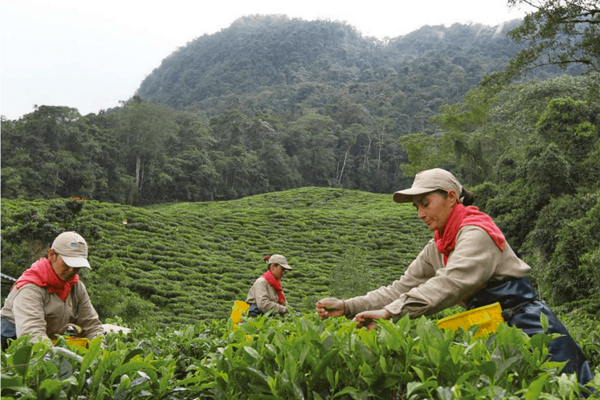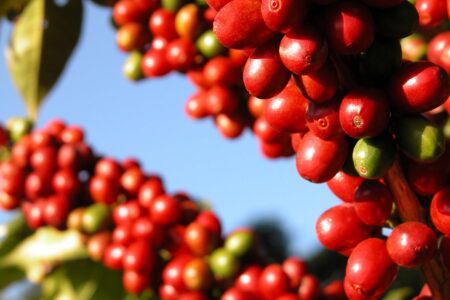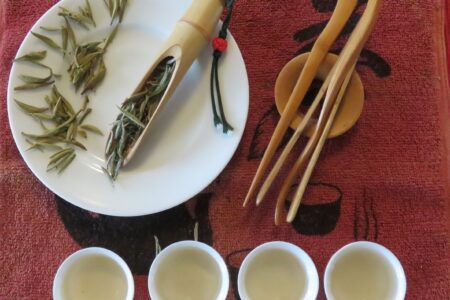Awakening the World to Colombian Orthodox Tea

Through producing tea in a country long respected for its coffee, the family-owned company, Agricolahimalaya, aims to raise the profile of Colombian orthodox tea.
By Anne-Marie Hardie
When you think of Colombia and its beverages, the first one that pops to mind is most likely coffee. Colombia was one of the first coffee-producing countries to introduce the mass market to the wonders of Arabica. However, there is another beverage story hidden amid the West Andes mountain, that of Colombian tea.
Although still largely unknown, Colombia is not new to the tea market. In fact, the family-owned company Agricolahimalaya has been producing tea for close to 60 years. But today, they are garnering attention with their new brand Bitaco, which is awakening the world to the wonders of specialty Colombian tea. Named after the region where it is produced, Bitaco Tea was established in 2013, responding to the industry’s increased interest in orthodox tea production.
“One thing that most people don’t know is that our journey into the tea industry began in the sixties with hand plucked loose-leaf tea, so in a way we are returning to our roots,” said Santiago Gonzalez, international sales representative, Agricolahimalaya. A third-generation family-owned business, the company shifted to CTC (crush, tear, curl) production in the 1970s under the brand name Hindu in response to the industrial tea boom.
Over the years, Hindu evolved into a large retail brand responding to the mass tea consumption needs of 11 different countries including Paraguay, Panama, Bolivia, and the USA. In Colombia, Hindu comprises 45 percent of the existing tea market. However, the cost to produce Colombian CTC tea was approximately four times higher than other CTC-producing regions, such as Kenya and India. This was in part due to the higher employee standards including health and education benefits. “We had invested a lot in the region but our production costs for CTC were high and we were unable to compete in the current market,” said Gonzalez. The company knew that if it wanted to remain competitive and profitable something would have to change. The natural solution was to bring in CTC tea from regions where the production cost was substantially lower.
However, Agricolahimalaya was deeply invested in the Bitaco community and wanted to continue to employ their loyal tea pluckers. “Instead of closing our tea gardens, we decided to create a specialty tea program which would keep people working in the region,” said Gonzalez.
The transition was partially inspired by Nigel Melican, managing director of Teacraft Ltd in Bedford, England, who had visited the plantation several times over the last 30 years and assisted with the initial launch of Bitaco. “Nigel suggested that we had the right environment to do more than produce CTC from our camellia sinensis plants,” said Gonzalez. “Our hope was to offer a specialty tea line unlike any other in the world.”
The company also continued with the Hindu brand but increased their profit margins by importing most of the CTC teas for the blend. Much of the tea-garden production was shifted to orthodox tea and their new brand, Bitaco.
An Environment Designed for Tea
Positioned approximately 6000 feet above sea level, in the middle of the cloud forest, the tea garden is strategically nestled within the geographic region of Chocó known for its biodiversity and rainfall. The holding company, Agricolahimalaya’s property consists of 210 hectares, which includes 100 hectares of the protected rainforest, Bitaco Regional Forest Reserve.
The camellia sinensis plants are planted in 20 lots, each one separated by strips of forests. These natural barriers have substantially aided with irrigation and reduced pest cross contamination. However, an extremely dry summer in 2016 motivated the company to invest in a back-up plan. “We have been blessed in never having to use drip water, but as the climate continues to shift, we knew that it was time that we developed an irrigation program,” said Gonzalez. The system includes three water reservoirs that collect the rain fall overflow in the region. “We’ve never had to use them, but we have them ready in case a drought occurs.”
Embracing a New Mind Set
The first year after the transition to orthodox tea was far from an easy one. “It required a complete shift in thinking, the pests were difficult to fully control with organic methods,” said Gonzalez. “Then we stepped back and realized that the insects also have to eat something, and that our separated tea fields will help protect the plants from an extensive invasion.”
The conversion to orthodox specialty tea was extensive including building new infrastructure, plucker education, and fully committing to organic production methods. Through conventional harvesting, Agricolahimalaya plucked 500 tonnes of green leaf per year. The conversion to hand plucking solely two leaves and a bud reduced the amount to about 90 tonnes in the first year of production.
Bitaco prided itself in setting a high plucking standard for all their teas. However, Gonzalez shared that it was difficult to change the habits of pluckers who had been using the sheer harvesting method for more than 20 years. “The key was getting the tea pluckers to shift their focus from quantity to quality,” said Gonzalez. “Our field managers were continually sharing these new values at every opportunity that was available, morning meetings, in the fields, whenever they had a chance to remind them that Bitaco was now in a business that was centred on quality.”
Wanting to truly improve their overall quality of tea, Bitaco brought in Sri Lanka field trainer Mookan Arumugam Murugiah, a trainer who was highly recommended by Melican. For two months, Murugiah immersed himself in the tea gardens working side by side with Bitaco’s employees. It was here that he demonstrated not only plucking techniques, but plant management strategies that would improve the overall quality of the tea. “Mookan was instrumental in raising the quality of Bitaco Tea,” said Gonzalez. “He had worked on tea fields for more than 35 years, and we felt privileged to have been one of the last projects he worked on. He made an incredible impact.”
New Facility Geared for Future Growth
In 2016, Bitaco built their top of the line ISO 200 certified factory. Designed with future production levels in mind, this modern factory is equipped with machinery from both India and Japan. “The team went to Ambootia to learn about the equipment and how to create high quality teas,” said Gonzalez. “We’ve made a substantial investment to ensure that we can consistently produce the highest quality teas.” Today, Bitaco produces three grades of green tea, wiry, needle and loose, and six grades of black tea. A selection of their teas are blended with regional ingredients including cacao, coffee and exotic fruits, including guava, starfruit, lulo and mango. “We are trying to create everything with the concept of Colombia in mind and highlight our pride in our culture,” said Gonzalez.
The specialty teas are exported as private label products in both North America and Europe. “We have formed great partnerships across the globe with partners who believe and value our products,” said Gonzalez. The brand Bitaco is reserved for Colombia and the surrounding regions where they sell both loose-leaf tea and pyramid sachets in Chile, Panama, Guatemala and Colombia.
Governed by the philosophy of ‘never be comfortable where you are,’ Bitaco continues to push themselves to the next level. “We are continually improving our processes and thinking about what we want to offer for tomorrow,” said Gonzalez. Over the next eight years, Bitaco will expand to 100 hectares, with plans to plant five new hectares each year.
However, specialty tea is only a part of this company’s story. Agricolahimalaya is heavily invested in their community supporting several social and environmental projects. The driving force behind their sustainability efforts is owner and CEO of the Agricola Himalaya Foundation, Maria Carlota Llano. “Maria is an empowered and passionate woman and is committed to the social and environmental development of the region,” said Gonzalez.
Youth and education remain at the forefront, including providing free childcare at the Bitaco day care facility, a scholarship fund, donating resources and equipment, and providing the funding to run English and environmental classes. “We are extremely invested in the education of our youth, including 16 annual scholarships and funding a specialized program at the high school level for those students who have expressed interest in agriculture,” said Gonzalez.
On the environmental side, the foundation is focused on restoring and revitalizing the Bitaco region. This includes a native tree nursery which offers free trees to community members focused on reforestation and the restoration of the local river, which is being done in partnership, with German NGO Misereor. “Sustainability at Agricolahimalaya is not just brochure material, it’s an integral part of who we are,” said Gonzalez.
When asked about the future, Gonzalez shared that they were extremely optimistic with several different ideas on how to evolve moving forward. For now, their goal is to simply increase awareness of the Bitaco brand and Colombia tea at a national and international level.
Anne-Marie Hardie is a freelance writer, professor and speaker based in Barrie, Ontario. She may be reached at: [email protected].



